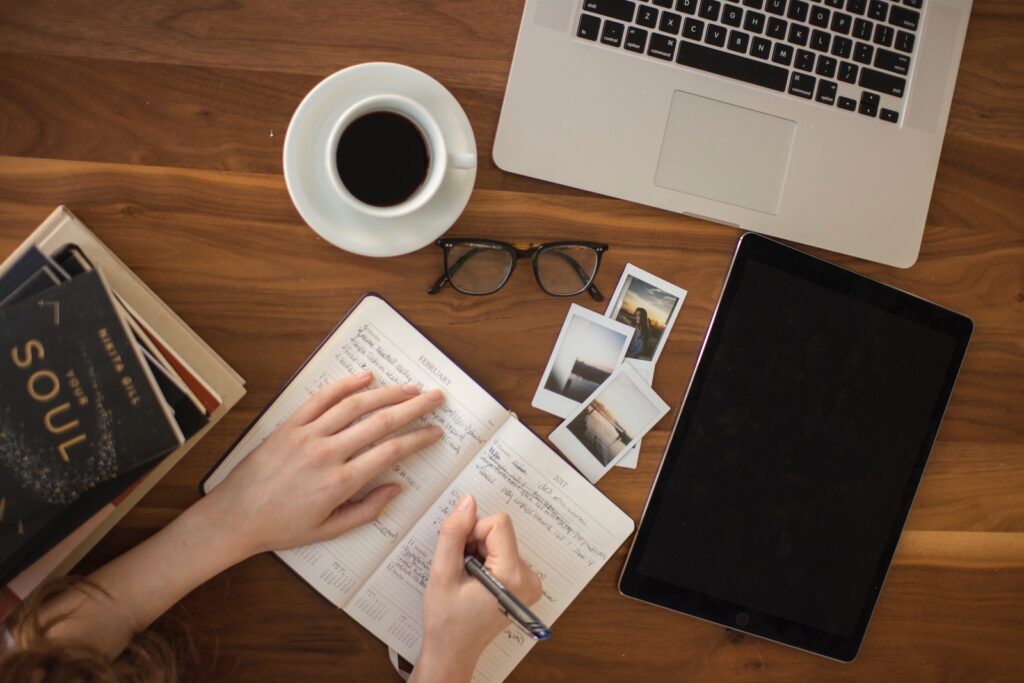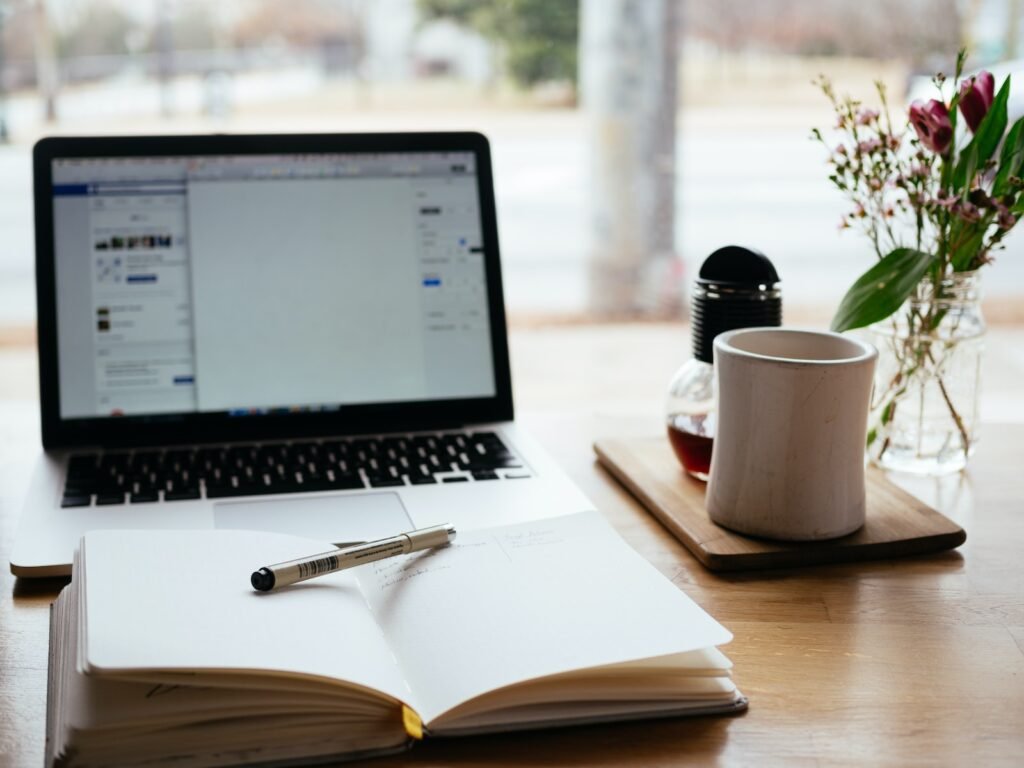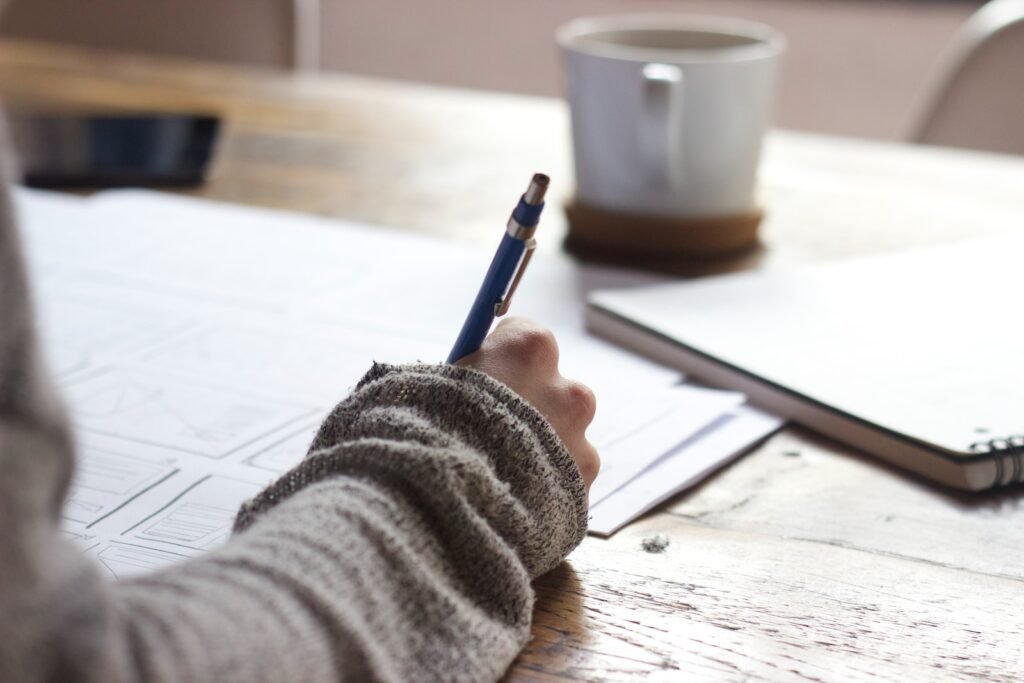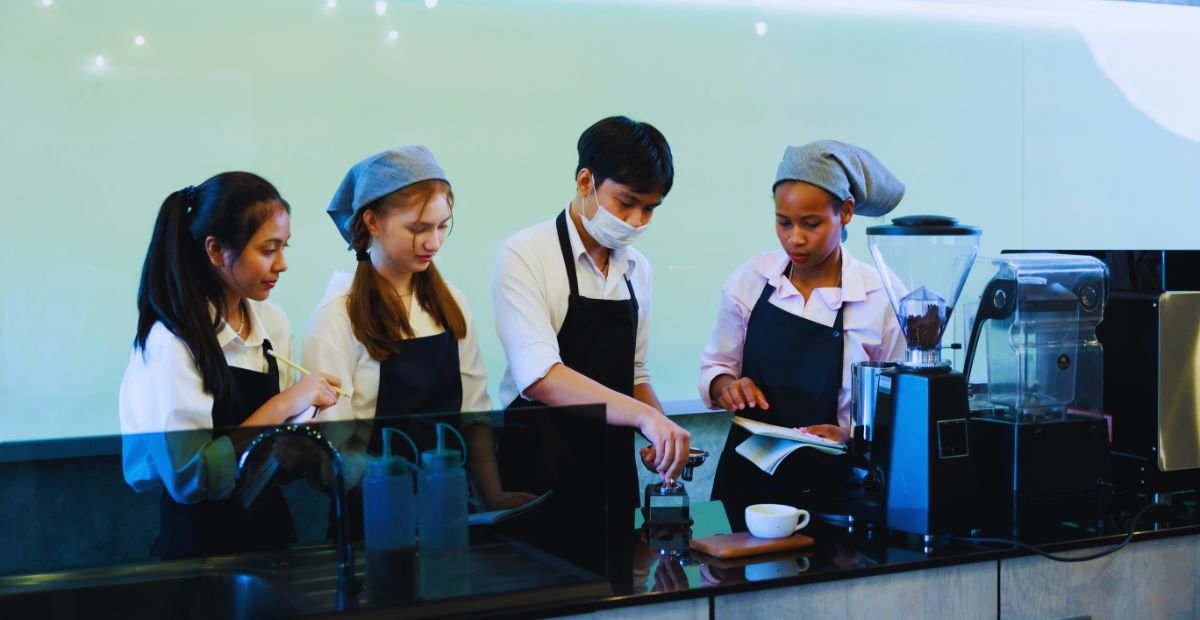Best 2 Methods of How to Make Coffee for Studying?
Coffee is often hailed as the ultimate companion for late-night study sessions and early-morning cramming. Its caffeine kick can help you stay awake and alert when you need to focus on your books. But, making the perfect cup of coffee for studying is an art that can greatly enhance your productivity and keep those all-nighters bearable.
In this guide, we’ll walk you through the steps of how to make coffee for studying that’s not only delicious but also provides the energy and focus you need to conquer your academic challenges.
What is Black Coffee?
Black coffee, often referred to simply as “coffee,” is a classic and straightforward beverage cherished by millions around the world. It’s the purest form of coffee, a stark departure from its more elaborate and creamy counterparts like lattes, cappuccinos, or mochas. So, what exactly is black coffee?
1. Coffee Beans: At its core, black coffee starts with coffee beans. These beans are typically the seeds of ripe coffee cherries, which are harvested, processed, roasted, and ground to create the coffee grounds used for brewing.
2. Brewing Process: The brewing process for black coffee is relatively simple. It involves infusing freshly ground coffee beans with hot water to extract their flavors, oils, and, of course, caffeine. The key here is the absence of added ingredients like milk, cream, or sweeteners.
3. No Additives: Black coffee is served as a pure and unadulterated brew. It contains no additives, flavorings, or enhancements beyond the coffee itself and water. This simplicity allows you to experience the unaltered taste of the coffee beans.
4. Flavor Profile: The flavor of black coffee can vary significantly depending on several factors, including the type of coffee beans used, the roast level, the grind size, and the brewing method. Common flavor notes include earthy, nutty, fruity, or even slightly bitter undertones, and these nuances can be appreciated more fully when there are no other ingredients masking them.
5. Caffeine Boost: Black coffee is celebrated for its caffeine content, which can provide a much-needed energy boost and mental alertness. Many people rely on it to kickstart their mornings or stay focused during long study or work sessions.
6. Versatility: Despite its simplicity, black coffee is incredibly versatile. It can be brewed using various methods, such as drip brewing, pour-over, French press, or espresso, each of which brings out unique characteristics in the coffee.
7. Health Benefits: In moderation, black coffee offers several potential health benefits. It’s a source of antioxidants and has been associated with improved cognitive function, increased metabolism, and a lower risk of certain diseases when consumed as part of a balanced diet.

Methods to Make Black Coffee at Home
Black coffee, the simplest and most classic form of this beloved beverage, can be easily prepared in the comfort of your home. While there are various methods to brew a satisfying cup of black coffee, we’ll explore two popular techniques: the Pour-over method and the Traditional Machine Coffee method.
Method 1: Pour over Black Coffee
What You’ll Need:
- Freshly roasted coffee beans
- Burr coffee grinder
- Pour-over coffee maker (e.g., Hario V60 or Chemex)
- Filter paper
- Hot water (about 200°F or 93°C)
- Timer
- Mug
Steps:
- Measure Your Coffee: Start by measuring your coffee grounds. A general guideline is one to two tablespoons of coffee per six ounces of water, but you can adjust this ratio to your taste.
- Grind the Coffee: Grind your coffee beans to a medium-coarse consistency, similar to sea salt. The grind size is crucial for the pour-over method, as it affects the extraction time and flavor.
- Prep the Filter: Place a filter paper in your pour-over coffee maker and set it over your mug or carafe.
- Bloom the Coffee: Pour a small amount of hot water (about twice the weight of your coffee grounds) evenly over the coffee grounds to saturate them. Give it around 30 seconds to blossom. As a result, trapped gases are released, improving flavor extraction.
- Begin the Pour: Start pouring hot water in a slow, steady spiral motion over the coffee grounds, starting from the center and moving outward. Maintain this slow, circular pour to ensure even saturation.
- Control the Brew Time: Use a timer to control the brew time. Typically, the entire process should take around 2-4 minutes. Adjust the grind size or pour rate to achieve the desired brew time.
- Serve and Enjoy: Once the water has passed through the coffee grounds and dripped into your mug or carafe, your pour-over black coffee is ready to be savored. Enjoy it hot!
Method 2: The Traditional Machine Coffee
What You’ll Need:
- Coffee maker (drip or espresso machine)
- Freshly roasted coffee beans
- Burr coffee grinder (for drip machines)
- Hot water (for espresso machines)
- Mug
Steps:
- Prepare Your Coffee Maker: Ensure that your coffee maker is clean and in good working condition. If using a drip coffee maker, set up the filter basket and filter paper.
- Measure and Grind the Coffee: Measure the appropriate amount of coffee grounds based on your machine’s capacity. For drip machines, use a medium-coarse grind. For espresso machines, use a fine grind. Grind your beans accordingly.
- Add Water: Fill the coffee maker’s water reservoir with the required amount of water. Use cold, clean water.
- Brew: Turn on your coffee maker and allow it to brew. The brewing time and process will vary depending on the type of machine you’re using. Drip machines typically take a few minutes, while espresso machines work quickly.
- Serve and Enjoy: Once the brewing process is complete, pour the black coffee into your mug. It’s now ready to be enjoyed. If desired, you can add sugar, cream, or other flavorings, but remember that these additions will transform it into something other than black coffee.
These two methods offer you the choice between a more hands-on, artisanal approach (the pour-over method) and the convenience of traditional coffee machines. Whichever method you choose, the result will be a satisfying cup of black coffee to fuel your mornings or enhance your study sessions at home.
Benefits of Drinking Black Coffee for Studying
Coffee, particularly in its purest form as black coffee, has been a trusted companion for students and scholars alike for many years. Beyond its rich and invigorating taste, black coffee offers several benefits that can enhance your studying experience. Here are some of the advantages of sipping on black coffee while hitting the books:
1. Enhanced Alertness and Concentration:
The most well-known benefit of black coffee is its caffeine content. Caffeine is a natural stimulant that can increase alertness, improve focus, and enhance cognitive function. It helps combat drowsiness and keeps you mentally sharp during long study sessions.
2. Improved Memory and Learning:
Research has shown that moderate caffeine consumption can positively affect memory and learning abilities. It may help you retain information more effectively, which is crucial for academic success.
3. Increased Energy Levels:
Studying can be physically and mentally draining, especially when you’re burning the midnight oil. Black coffee provides a quick energy boost, helping you combat fatigue and stay awake when you need it the most.
4. Enhanced Physical Endurance:
In addition to mental benefits, caffeine in black coffee can improve physical endurance. If you incorporate short breaks for physical activity during your study sessions, coffee can help you stay energized for those activities.
5. Mood Elevation:
Coffee can also have mood-enhancing effects. It can help reduce feelings of anxiety and depression, which can be common during stressful academic periods. However, it’s essential to consume coffee in moderation to avoid jitteriness.
6. Antioxidant Properties:
Black coffee is a rich source of antioxidants, which can help protect your cells from damage caused by free radicals. Antioxidants are believed to have various health benefits, including potential protection against certain diseases.
7. Social and Study Breaks:
Enjoying a cup of black coffee can serve as a pleasant study break ritual. Taking short breaks to savor your coffee can rejuvenate your mind and provide a moment of relaxation during intense study sessions.
8. Weight Management:
Black coffee is virtually calorie-free, making it an excellent choice for those concerned about calorie intake while studying. It can also slightly boost metabolism, aiding in weight management.
9. Cost-Effective Solution:
Compared to many other energy-boosting beverages, black coffee is a cost-effective option for students on a budget. It’s readily available and can be brewed at home for a fraction of the cost of specialty coffee drinks.
10. Improved Productivity:
By keeping you awake, alert, and focused, black coffee can significantly improve your overall productivity while studying. You’ll likely find it easier to tackle complex subjects and complete assignments efficiently.
It’s important to note that while black coffee offers numerous benefits for studying, moderation is key. Consuming excessive caffeine can lead to jitteriness, anxiety, and disrupted sleep patterns, which can have a negative impact on your academic performance. To maximize the advantages of black coffee, be mindful of your caffeine intake and maintain a balanced study routine.

How to Prepare Black Coffee for Losing Weight
Black coffee, with its minimal calorie content and caffeine boost, can be a valuable addition to your weight loss journey. When prepared and consumed thoughtfully, black coffee can support your weight loss goals by increasing metabolism, reducing cravings, and providing an energy boost for physical activities. Here’s how to make black coffee for weight loss effectively:
1. Choose Quality Coffee Beans:
Start with high-quality coffee beans. The flavor and aroma of your coffee will largely depend on the beans you choose. Opt for freshly roasted beans for the best taste.
2. Use Filtered Water:
The quality of water matters. Use filtered or clean, cold water to brew your coffee. Avoid tap water with strong odors or flavors, as it can affect the taste.
3. Invest in a Burr Grinder:
To ensure consistency in grind size, invest in a burr grinder. A consistent medium-coarse grind works well for black coffee.
4. Measure Your Coffee:
Determine the right coffee-to-water ratio. A common guideline is one to two tablespoons of coffee grounds per six ounces of water, but you can adjust this to your preference.
5. Brew Method:
Select your preferred brewing method. Drip brewing, pour-over, or French press are popular choices. Each method can influence the flavor profile of your coffee.
6. Use Hot Water (but not boiling):
The water temperature should be between 195°F and 205°F (90°C-96°C) for optimal extraction. Avoid using boiling water, as it can scald the coffee and result in a bitter taste.
7. Brew Time:
Pay attention to the brewing time. Generally, a brew time of 3-4 minutes is ideal. Depending on your taste preferences, adjust the time.
8. Avoid Sugar and Cream:
The key to black coffee for weight loss is to consume it without added sugars, cream, or flavorings. These extras can significantly increase calorie intake.
9. Enjoy it Plain:
Sip your black coffee as is, without adding any calorie-laden extras. If the taste is too bitter for you initially, consider gradually reducing sugar and cream until you can enjoy it plain.
10. Time it Right:
Incorporate black coffee into your daily routine strategically. Consuming it 30 minutes to an hour before a workout can provide an energy boost, enhancing your exercise performance and calorie burn.
11. Stay Hydrated:
While black coffee can help with weight loss, it’s essential to balance it with proper hydration. Drink water throughout the day to stay well-hydrated.
12. Portion Control:
Be mindful of your coffee portions. Consuming excessive amounts of coffee can lead to overstimulation, restlessness, and disrupted sleep patterns, which may hinder weight loss efforts.
13. Monitor Total Calorie Intake:
Remember that while black coffee is low in calories, your overall calorie intake throughout the day is crucial for weight loss. Be conscious of your dietary choices and portion sizes.
Incorporating black coffee into your weight loss plan can be an effective strategy, but it’s essential to combine it with a balanced diet and regular exercise for optimal results. Additionally, listen to your body and adjust your coffee consumption based on your individual tolerance and preferences.
Tips & Tricks for Making the Perfect Black Coffee
Black coffee, when made to perfection, is a delightful and energizing beverage. Its simplicity allows the natural flavors of the coffee beans to shine through. Whether you’re a seasoned coffee enthusiast or a beginner, these tips and tricks will help you brew the perfect cup of black coffee:
1. Choose Quality Coffee Beans:
Start with fresh and high-quality coffee beans. Look for beans with a roast date to ensure freshness. Experiment with different types of beans to discover your favorite flavor profiles.
2. Grind Just Before Brewing:
Invest in a burr grinder and grind your coffee beans just before brewing. This preserves the flavors and aromas, as ground coffee can quickly lose its freshness.
3. Measure Your Coffee:
Use a kitchen scale or a coffee scoop to measure the right amount of coffee grounds. A standard guideline is one to two tablespoons of coffee per six ounces of water, but adjust based on your taste preferences.
4. Control Water Temperature:
Water temperature matters. Aim for a range between 195°F and 205°F (90°C-96°C). Boiling water can scald the coffee, while water that’s too cool may result in under-extraction.
5. Pre-wet the Coffee Filter:
If you’re using a drip brew method, pre-wet the filter with hot water to remove any paper taste and to help the coffee grounds bloom evenly.
6. Mind the Brew Time:
Pay attention to the brewing time. Generally, a brew time of 3-4 minutes is ideal, but it can vary depending on your brewing method and grind size. Experiment to find your perfect brew time.
7. Use Clean Equipment:
Keep your coffee equipment clean. Your coffee’s flavor may be affected by leftovers from prior brewing. Regularly clean your coffee maker, grinder, and brewing accessories.
8. Experiment with Brew Methods:
Explore different brewing methods like pour-over, French press, AeroPress, or espresso to discover unique flavor profiles. Every technique provides a different coffee experience.
9. Be Consistent with Grind Size:
Maintain a consistent grind size for your coffee beans. The grind size affects the extraction process and can result in over- or under-brewing if inconsistent.
10. Enjoy It Fresh:
Black coffee is at its best when consumed immediately after brewing. Avoid letting it sit for too long, as it can become bitter as it cools.
11. Avoid Reheating:
Reheating black coffee can alter its flavor and make it taste stale. Brew only what you plan to drink, and if you have leftovers, consider repurposing them in recipes like iced coffee.
12. Practice Patience:
Let your coffee cool slightly before taking your first sip. This allows the flavors to settle, providing a more enjoyable tasting experience.
13. Experiment with Ratios:
Feel free to experiment with the coffee-to-water ratio to find the strength you prefer. To fit your preferences, you may choose how much coffee or water is used.
14. Savor the Experience:
Finally, savor the process of making and enjoying your black coffee. Pay attention to the aroma, flavor, and the moment of relaxation it offers.
By following these tips and tricks, you can elevate your black coffee-making skills and customize your brew to match your personal taste preferences. Whether you enjoy it as a morning ritual or as a study companion, the perfect cup of black coffee can brighten your day.

Frequently Asked Questions About How to Make Coffee for Studying?
How to make good coffee for studying?
Making good coffee for studying involves several key steps:
- Start with high-quality coffee beans.
- Grind the beans just before brewing for freshness.
- Use the right coffee-to-water ratio (typically 1-2 tablespoons of coffee per 6 ounces of water).
- Control water temperature (195°F-205°F or 90°C-96°C).
- Pay attention to brewing time (usually 3-4 minutes).
- Experiment with different brewing methods (e.g., pour-over, French press, drip) to find your preference.
- Avoid adding excessive sugar or cream, especially if you want to keep it low in calories.
- Enjoy it fresh and savor the experience.
Can coffee be good for studying?
Yes, coffee can be beneficial for studying due to its caffeine content. Caffeine is a natural stimulant that can increase alertness, focus, and cognitive function. It can help combat drowsiness and enhance productivity during study sessions. However, moderation is essential, as excessive caffeine intake can lead to negative side effects like restlessness and disrupted sleep patterns.
What coffee is good for studying?
Any type of coffee can be suitable for studying, but it’s essential to focus on how you prepare it. Choose high-quality coffee beans and brew them properly, following the tips mentioned earlier. The best coffee for studying depends on your personal taste preferences.
Which coffee is best for students: cold or hot?
The choice between hot and cold coffee for studying depends on personal preference and the study environment. Hot coffee is ideal for cold weather and may provide a cozier atmosphere. Cold coffee, such as iced coffee or cold brew, can be refreshing during warm weather or when you prefer a cooler beverage. Both can offer the same caffeine benefits, so it ultimately comes down to your taste and comfort.
Is NESCAFÉ a coffee?
NESCAFÉ is a well-known brand of instant coffee products. While it is coffee-based and provides a convenient way to prepare coffee quickly, it is technically instant coffee rather than freshly brewed coffee. Instant coffee is made by processing and drying brewed coffee, and it can be a convenient option for students or those in a hurry.
How much coffee should I drink to study?
The ideal amount of coffee for studying varies from person to person and depends on individual tolerance to caffeine. A typical recommendation is to consume no more than 400 milligrams of caffeine per day, which is roughly equivalent to 4 cups of brewed coffee. However, some people are more sensitive to caffeine, so it’s advisable to start with a lower amount and monitor how it affects your focus and energy. Additionally, avoid caffeine intake close to bedtime to ensure you can get a good night’s sleep.
Conclusion
In conclusion, learning how to make coffee for studying is a valuable skill that can significantly enhance your focus and productivity. Whether you prefer the simplicity of black coffee, the convenience of instant coffee, or a more elaborate coffee recipe, understanding the brewing process and following a step-by-step guide can lead to a satisfying cup of coffee tailored to your taste.
With the aid of detailed instructions, step-by-step pictures, and black coffee recipes, you can create the perfect study companion that not only keeps you awake but also delights your senses. So, whether it’s a classic black coffee recipe or an inventive coffee creation, your journey to a productive study session starts with a well-brewed cup of coffee.
